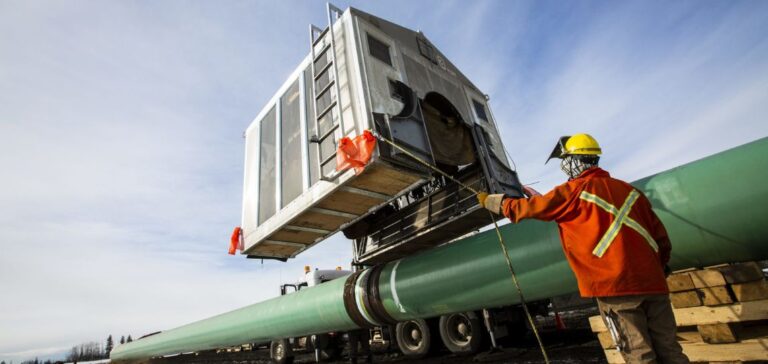The Trans Mountain oil pipeline, connecting central Canada to its west coast, went into operation this Wednesday, after several delays. This pipeline is the first major one to be built in Canada in decades, a country that ranks fourth among the world’s crude oil exporters. As Alberta celebrates this breakthrough, environmentalists and aboriginal communities are voicing strong opposition. Fears of oil spills and their impact on orcas in the Pacific are at the heart of concerns. This situation highlights the challenges of reconciling economic growth with environmental responsibility.
Economic consequences and criticism
The cost of the project, initially estimated at C$7.4 billion, has ballooned to a potential C$34 billion. Critics, including the Parliamentary Budget Officer, call the project a financial loss, pointing out that construction costs are higher than the anticipated added value. This raises questions about the long-term economic viability of such investments.
Geopolitical and energy implications
The impact of the new pipeline on global energy geopolitics is also something to keep an eye on. According to Pierre-Olivier Pineau, while the pipeline won’t radically alter the global energy balance, it will reduce dependence on Middle Eastern suppliers, offering new alternatives. This change could slightly reorient global energy power dynamics.
The challenges of reconciliation with indigenous communities
Pipeline construction has exacerbated tensions with Aboriginal communities, jeopardizing the Trudeau government’s reconciliation efforts. Managing these relationships and the need for a more inclusive approach have become central issues in Canadian politics, highlighting the complications inherent in natural resource management.
A climate perspective on industrial reality
The project runs counter to Canada’s climate objectives, which aim to significantly reduce greenhouse gas emissions. Jean-Philippe Sapinski underlines the pipeline’s incompatibility with a genuine ecological transition, pointing to the challenges of aligning environmental ambitions with industrial interests.
The inauguration of the new Trans Mountain pipeline represents a turning point for the Canadian oil industry, but raises profound questions about the balance between economic progress and environmental conservation, as well as the social and financial implications of such projects.





















